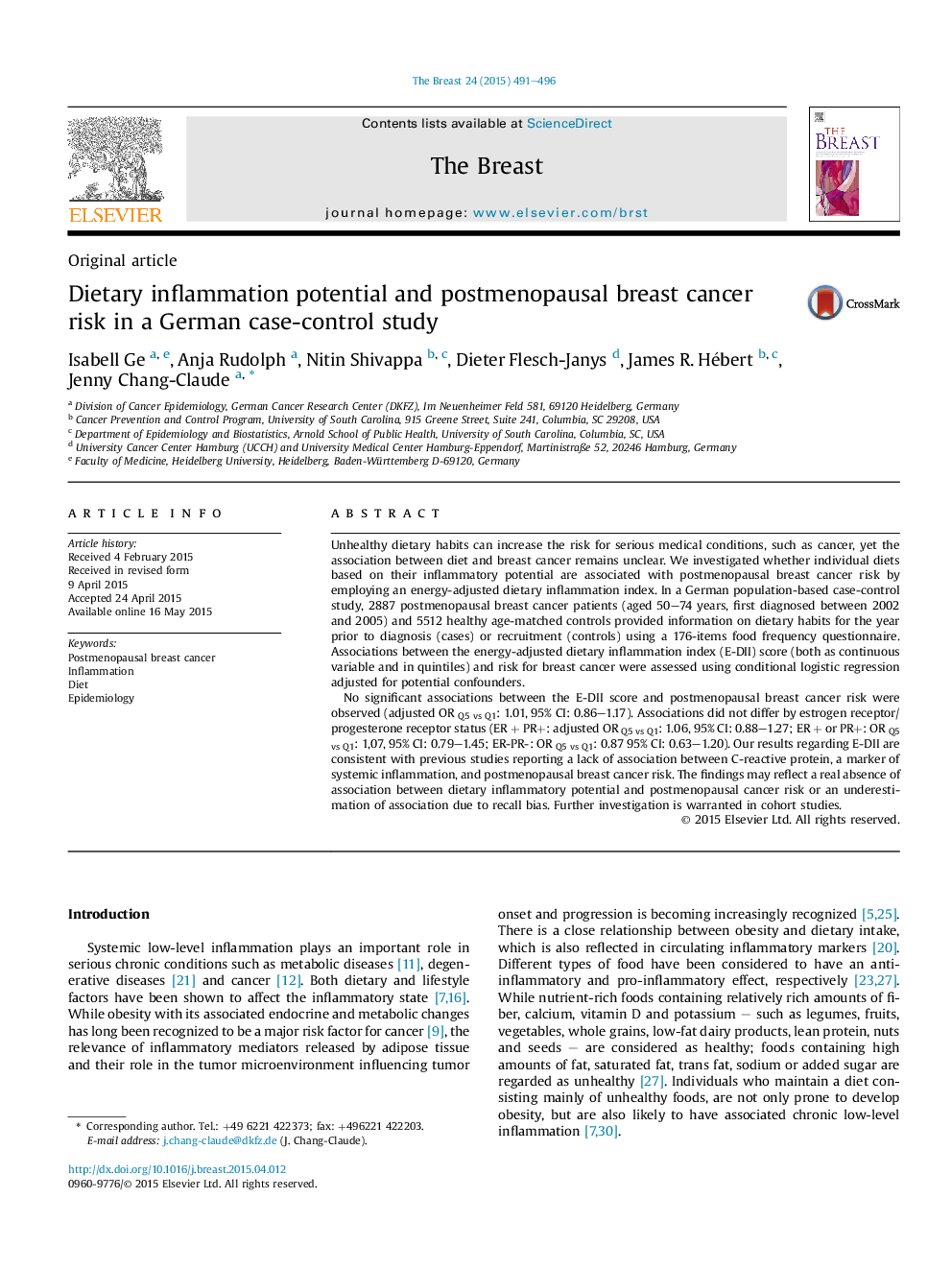| Article ID | Journal | Published Year | Pages | File Type |
|---|---|---|---|---|
| 6169630 | The Breast | 2015 | 6 Pages |
Unhealthy dietary habits can increase the risk for serious medical conditions, such as cancer, yet the association between diet and breast cancer remains unclear. We investigated whether individual diets based on their inflammatory potential are associated with postmenopausal breast cancer risk by employing an energy-adjusted dietary inflammation index. In a German population-based case-control study, 2887 postmenopausal breast cancer patients (aged 50-74 years, first diagnosed between 2002 and 2005) and 5512 healthy age-matched controls provided information on dietary habits for the year prior to diagnosis (cases) or recruitment (controls) using a 176-items food frequency questionnaire. Associations between the energy-adjusted dietary inflammation index (E-DII) score (both as continuous variable and in quintiles) and risk for breast cancer were assessed using conditional logistic regression adjusted for potential confounders.No significant associations between the E-DII score and postmenopausal breast cancer risk were observed (adjusted OR Q5 vs Q1: 1.01, 95% CI: 0.86-1.17). Associations did not differ by estrogen receptor/progesterone receptor status (ERÂ +Â PR+: adjusted OR Q5 vs Q1: 1.06, 95% CI: 0.88-1.27; ERÂ +Â or PR+: OR Q5 vs Q1: 1,07, 95% CI: 0.79-1.45; ER-PR-: OR Q5 vs Q1: 0.87 95% CI: 0.63-1.20). Our results regarding E-DII are consistent with previous studies reporting a lack of association between C-reactive protein, a marker of systemic inflammation, and postmenopausal breast cancer risk. The findings may reflect a real absence of association between dietary inflammatory potential and postmenopausal cancer risk or an underestimation of association due to recall bias. Further investigation is warranted in cohort studies.
